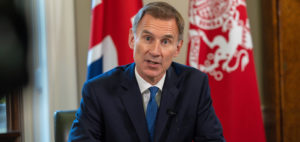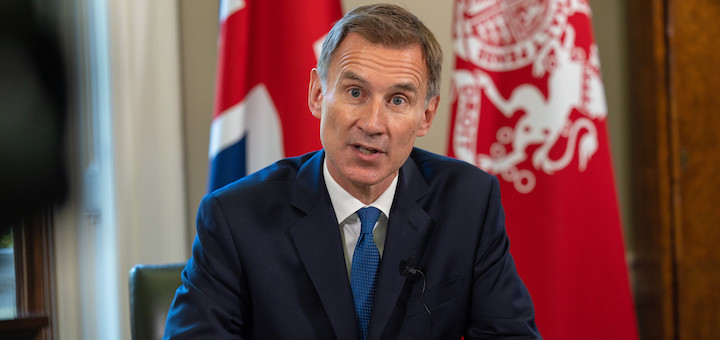 The chair of the Local Government Association (LGA) has warned that councils’ financial sustainability is “already on a cliff-edge” following the chancellor’s announcement that areas of public spending will need to be cut.
The chair of the Local Government Association (LGA) has warned that councils’ financial sustainability is “already on a cliff-edge” following the chancellor’s announcement that areas of public spending will need to be cut.
Jeremy Hunt announced on 17 October that the government will reverse “almost all” of the tax measures announced three weeks ago in the former chancellor’s mini-budget. This includes a reversal of the planned one percentage point cut in the basic rate of income tax, the dividend tax cut and the freeze on alcohol duty rates.
In his emergency statement, Hunt said: “There will be more difficult decisions, I’m afraid, on both tax and spending as we deliver our commitment to get debt falling as a share of the economy over the medium term.
“All departments will need to redouble their efforts to find savings and some areas of spending will need to be cut.”
In response to the chancellor’s statement, LGA chair James Jamieson said: “The news that government departments have been tasked with identifying efficiency savings from public sector budgets has sent a collective shiver down the spine of local government.
“It comes at a time when the future financial sustainability of councils and local services is already on a cliff-edge.”
With local government facing a funding gap of £3.4bn in 2023/24 and £4.5bn in 2024/25, it is clear that the government needs to come up with a long-term plan to manage this crisis.
Room151’s Monthly Online Treasury Briefing
October 28 2022
Online
Public sector delegates – register here
Impact of inflation
 Jamieson said that inflation, increases in the national living wage and higher energy costs had added at least £2.4bn in extra costs onto the budgets that councils set back in March this year.
Jamieson said that inflation, increases in the national living wage and higher energy costs had added at least £2.4bn in extra costs onto the budgets that councils set back in March this year.
“Some are planning to use reserves to plug funding gaps, stop capital projects or make cutbacks to services to meet their legal duty to balance the books this year.
“However, with local government facing a funding gap of £3.4bn in 2023/24 and £4.5bn in 2024/25, it is clear that the government needs to come up with a long-term plan to manage this crisis.”
Cllr Sir Stephen Houghton, chair of the Special Interest Group of Municipal Authorities (SIGOMA), also warned that further cuts to public spending will threaten and damage many councils’ services.
He said: “The chancellor’s talk of ‘efficiencies’ to be found is very worrying. Inflationary pressure is already forecast to wipe £1bn off our members’ budgets in each of the next two years, which threatens key services and regeneration projects.
“We know it is the poorest in our society who rely most on our services – for these key frontline services to face a cash cut following a decade of austerity would be very damaging and must not happen.”
Loss of trust and credibility
Jeffrey Matsu, CIPFA’s chief economist,” claimed that the government had lost the trust of the public and its credibility within the global financial markets. He said: “Trussonomics was a reckless experiment which will take the government a long time to recover from.”
In his announcement, the chancellor stated that the reversal of parts of the mini-budget will save £32bn per year. However, Matsu said that “questions remain about where more money will come from to fill the black hole in the middle of public finances”.
“A fresh round of austerity is neither possible nor desirable,” he added.
Matsu pointed to an analysis by CIPFA and the Institute for Government, which suggests that most public services do not have sufficient funding to return to pre-pandemic performance levels by the time of the next election.
He said: “The chancellor has warned that all departments will be asked to look for savings, but with public services already stretched to breaking point these cuts will push them to the brink.”
—————
FREE weekly newsletters
Subscribe to Room151 Newsletters
Room151 LinkedIn Community
Join here
Monthly Online Treasury Briefing
Sign up here with a .gov.uk email address
Room151 Webinars
Visit the Room151 channel











